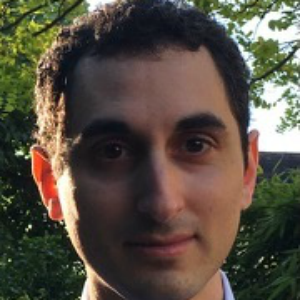
Dr Daniel Marks, clinical lecturer, University College London, and experimental medicine physician, GlaxoSmithKline
What do you do? and what is a typical week for you?
I am an academic clinician with expertise in clinical pharmacology and toxicology, immunology and inflammatory diseases, and experimental medicine. My typical week is split between the design and delivery of first-time-in-human and early phase drug trials in immunoinflammatory diseases, translational laboratory science aimed at understanding the switch between acute and chronic inflammation and how this causes chronic inflammatory diseases, and clinical medicine with activities in Acute/General Medicine and a subspecialty interest in Clinical Toxicology. I provide a lot of teaching on Therapeutics and General Medicine, and am Clinical Lead for the UCL MB PhD Programme.
What qualifications and experience do you have?
MB BS
BSc (Hons), 1st class, in Neurosciences
PhD (Immunology)
Completed Specialty Registrar training in Clinical Pharmacology and Therapeutics
Member of RCP (London) and BPS
Through work with GSK, I have designed experimental medicine studies to delineate mechanisms of therapeutics on their targets in the immune response and autoimmune disease. I contribute to indication and target selection, clinical strategy, and development plans for novel drugs. I have lead on the implementation of translational medicine studies, including biomarkers for target engagement and early proof of biology.
In my laboratory work, I conduct translational clinical science researching acute inflammation and its resolution in healthy volunteers and patients with chronic inflammatory disease. I have developed and optimized various challenge models in humans to map these responses in health and disease, and determine the impact of therapeutics. I provide medical expertise in the design and conduct of Phase 0 clinical trials, and have substantial experience with flow cytometry, protein assays and biochemistry, and cell fractionation and culture.
Through my clinical training I have gained expertise in clinical toxicology, delivery of Phase III trials, management of cardiovascular risk and hypertension, and medication safety.
What’s the most interesting aspect of your job?
Working at the interface between clinical medicine and laboratory science is fascinating, and the ability to deliver new therapeutics for disease areas where there is substantial unmet need extremely rewarding. Developing new medicines is complex and challenging, and clinical pharmacologists are uniquely positioned to combine an understanding of patients with knowledge of chemistry and biology to produce novel, efficient and robust strategies for identifying new drug targets and indications, and turning molecules into therapeutics in the clinic, for patients.
On the clinical side, Clinical toxicologist’s cares for a unique and often vulnerable patient group, who need a holistic physician who can manage both the acutely unwell patient with very perturbed physiology as well as the psychology and psychiatric components of their presentation. This is an area of medical practice where evidenced-based medicine has been logistically difficult to deliver, and hence an understanding of chemistry and pharmacokinetics, alongside strong clinical acumen, are vital.
What are your research interests?
- Immunoinflammatory and autoimmune diseases, and their pathogenesis
- The physiology of acute inflammation and inflammation resolution
- The impact of therapeutics on the inflammatory response
- Drug safety and poisoning
What one piece of advice would you give to someone seeking a career in clinical pharmacology?
Pursue the areas of medicine and science that interest and motivate you, and find good mentors.